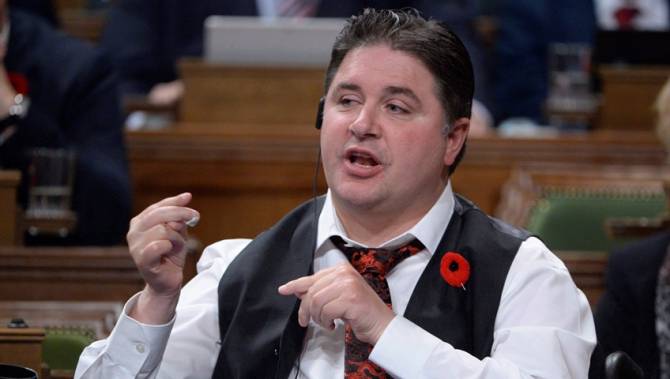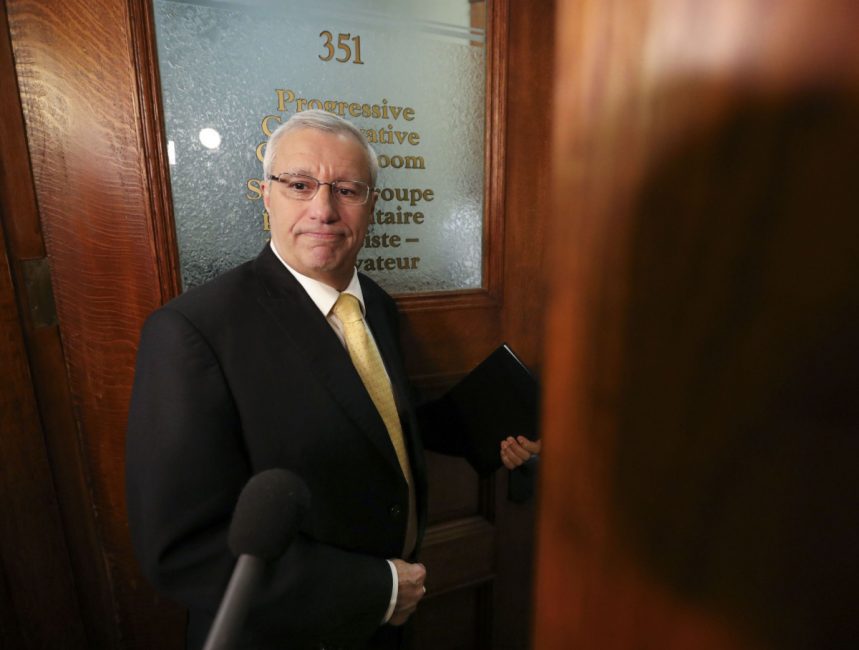The sudden explosion of sexual misconduct allegations in both federal and provincial politics has rocked the various capitals around the country, and with it come the familiar refrains about what needs to be done to address it. Yes, it requires a culture change, and the facile suggestion is always that you need more women in politics. Never mind that the suggestion relies on the notion that women would keep badly behaved men in check ("like good mommies do," as one particularly trenchant observer acidly suggested), there is also the reality that even in legislatures with a higher proportion of women who are in positions of power, like Alberta, it hasn't so much changed that political culture as it has to simply subject even more women to sexualized death threats. So there's that.
What bothers me even more, however, is the way in which certain parties and yes, NDP, I'm looking at you want to use this particular call to action to combat sexual misconduct as an opportunity to advance their other agenda items, particularly when it comes to electoral reform. In her first question as House Leader in Question Period on Monday, MP Ruth Ellen Brosseau demanded that the government was disingenuous in their sincerity in combatting harassment because they defeated the NDP's attempts at electoral reform.
"We also have solutions to suggest," said Brosseau, noting electing more women and the PM's statements that it was important. "He has rejected tools proposed by the member for Burnaby-South for gender parity for candidates, and NDP proposals around electoral reform. Today, only 26 percent of us around here are women."
This is the part that gets my hackles up. Why? Because aside from the jejune notion that "more women" is the solution, what they're proposing won't do the real work of getting women elected on an equal footing, and in some cases, won't do enough to get women into winnable ridings. For example, that bill of MP Kennedy Stewart's is to tie the rebates that parties are eligible to get post-election to the percentage of women candidates that they run. But we've seen this happen too often in politics where parties will run women candidates in ridings where they don't have any hope of winning, but can point to the fact that they ran a slate with a certain percentage. It doesn't address the issue where riding associations need to do the work of engaging their community in finding credible women who can carry the riding without doing so for the sake of ensuring that the party gets their rebate.
Likewise, thinking that proportional representation will be able to elect more women candidates by virtue of some form of list sends a worse message that women can only get elected when they come from a list to fulfil quotas. There would already be a problem where MPs who were selected from a list would face a power imbalance from those MPs who had to fight for their ridings, with those MPs being accountable to voters while list MPs were accountable to the party's leadership. When you add the complicating factor of women and minorities filling those list seats, they would come into parliament on an unequal footing which would do nothing to change the power imbalance that is at the heart of why they are already vulnerable to sexual misconduct. In fact, it may exacerbate it because they don't have the same agency that the current system affords MPs.
Add to that fact, under the likely perpetual minority governments that would result from a PR system, we are more likely to see the incentives to protect misbehaving MPs ratcheted up by the sheer fact that exposing them and suspending them or booting them from caucus can start to shift the composition of coalitions very quickly, and that in turn causes its own headaches. If anything, there would be an even stronger partisan reflex to sweep incidents under the rug in the hopes of not bringing down the government. We saw plenty of this kind of partisan behaviour in the era of minority governments under both Martin and Harper, and ensuring that this becomes a permanent state of affairs won't create the incentives to change the culture.
Yes, more women in politics will help, but it won't solve the problem of harassment. Electing women for the sake of electing women won't change the power dynamics alone. After all, while people may cite Rwanda as a great legislature because it has achieved gender parity, it ignores that many of those women are appointed from civil society and have little power. Equality has to be substantive rather than quantitative, and using gimmicks to improve numbers won't get you quantitative change only grassroots-driven change, where it's the communities themselves who find and elect those women will we get to a place where the power imbalances start to erode.
But that's a longer-term project. In the meantime, the culture change has to begin with existing MPs, and with recognizing that behaviours that were once deemed acceptable like taking young staffers and pages drinking at bars on Sparks Street after work can't be tolerated any longer. You don't need more women MPs to know that those kinds of behaviours are where problems lie, and where it needs to change. That's also something that can't be legislated so much as it has to be made an operating norm in the environment, and that can't rely only on the government to impose it has to come from within all of the parties themselves. Whether it means better anti-harassment training, or bystander training, or the measures contained in Bill C-65 that give access to Department of Labour investigators in federally-regulated spaces that would include Parliament Hill (one assumes that it waives parliamentary privilege to do so), that's all things that can start happening today. But to use this current breakthrough in addressing misconduct to push your other agenda items is being a bad actor in a time when leadership is needed.
Photo Credit: Global News








